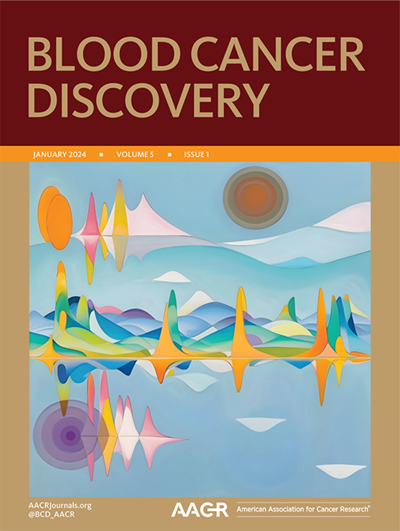Round Table Discussion on Optimal Clinical Trial Design in Precursor Multiple Myeloma.
IF 11.5
Q1 HEMATOLOGY
引用次数: 0
Abstract
Summary: While the current approach to precursor hematologic conditions is to "watch and wait," this may change with the development of therapies that are safe and extend survival or delay the onset of symptomatic disease. The goal of future therapies in precursor hematologic conditions is to improve survival and prevent or delay the development of symptomatic disease while maximizing safety. Clinical trial considerations in this field include identifying an appropriate at-risk population, safety assessments, dose selection, primary and secondary trial endpoints including surrogate endpoints, control arms, and quality-of-life metrics, all of which may enable more precise benefit-risk assessment.
前体多发性骨髓瘤最佳临床试验设计圆桌讨论会。
摘要:虽然目前治疗前体血液病的方法是 "观察和等待",但随着安全、延长存活期或延迟症状性疾病发生的疗法的开发,这种情况可能会改变。未来治疗前体血液病的目标是提高生存率,预防或推迟无症状疾病的发生,同时最大限度地提高安全性。该领域的临床试验考虑因素包括确定适当的高危人群、安全性评估、剂量选择、主要和次要试验终点(包括替代终点)、对照组和生活质量指标,所有这些都可以实现更精确的获益-风险评估。
本文章由计算机程序翻译,如有差异,请以英文原文为准。
求助全文
约1分钟内获得全文
求助全文
来源期刊

Blood Cancer Discovery
Multiple-
CiteScore
12.70
自引率
1.80%
发文量
139
期刊介绍:
The journal Blood Cancer Discovery publishes high-quality Research Articles and Briefs that focus on major advances in basic, translational, and clinical research of leukemia, lymphoma, myeloma, and associated diseases. The topics covered include molecular and cellular features of pathogenesis, therapy response and relapse, transcriptional circuits, stem cells, differentiation, microenvironment, metabolism, immunity, mutagenesis, and clonal evolution. These subjects are investigated in both animal disease models and high-dimensional clinical data landscapes.
The journal also welcomes submissions on new pharmacological, biological, and living cell therapies, as well as new diagnostic tools. They are interested in prognostic, diagnostic, and pharmacodynamic biomarkers, and computational and machine learning approaches to personalized medicine. The scope of submissions ranges from preclinical proof of concept to clinical trials and real-world evidence.
Blood Cancer Discovery serves as a forum for diverse ideas that shape future research directions in hematooncology. In addition to Research Articles and Briefs, the journal also publishes Reviews, Perspectives, and Commentaries on topics of broad interest in the field.
 求助内容:
求助内容: 应助结果提醒方式:
应助结果提醒方式:


